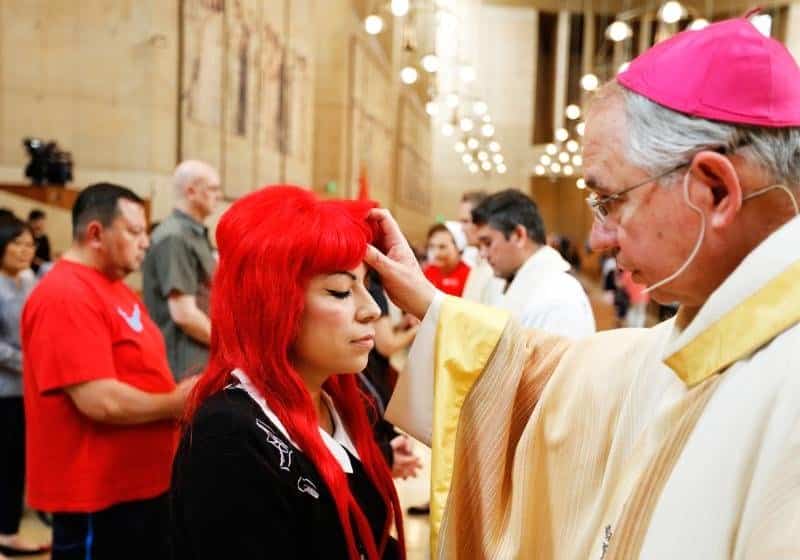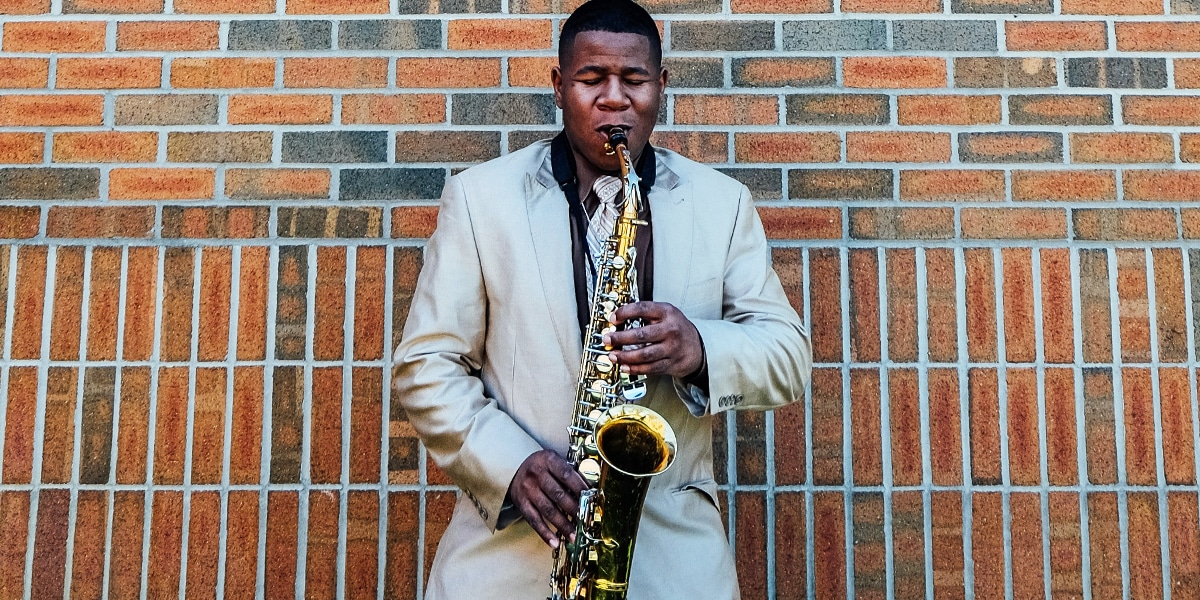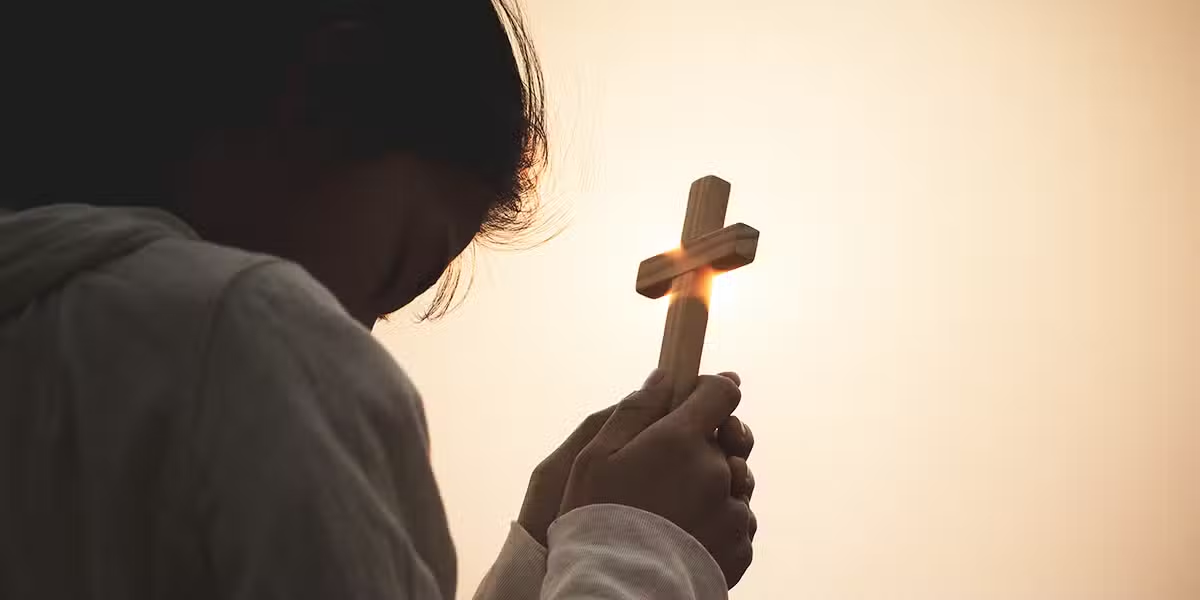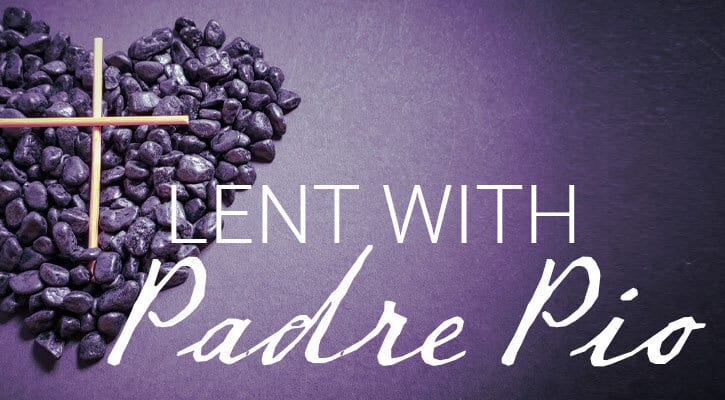Sickness, accidents, age—all things we have faced or will face as human beings. It’s just part of life. Life isn’t perfect and things happen. And sometimes they happen very unexpectedly.
When the Son of God became human of the Virgin Mary, he entered this imperfect world as Jesus of Nazareth. His life was not noticeably different from anyone else’s; at least not at first. And he, too, experienced human weakness. There were days when he suffered like us, especially at the end of his life. And so did his mother. After all, Simeon had predicted that a sword would pierce her heart. So, Jesus and Mary were not strangers to suffering.
The Sacrament of the Anointing of the Sick addresses this very human reality and is considered a sacrament of healing. As a sacrament, it is one of the ways Jesus assists us in life and offers his divine help. In this case, he offers his courage, strength, and healing—including spiritual healing in the forgiveness of sins. He is with his Church as members of his family face the difficulties inherent in being human. And he can do this with empathy because of his own human experiences.
A Communal Sacrament
Ideally, the sacrament is celebrated with a gathering of the Christian faithful. While it can be administered by a priest with only the sick person present, it is best if the patient’s family and friends are gathered as a sign of the Church’s concern, as well as the Lord’s. Suffering has a communal aspect for if one person suffers, in a real sense, all suffer. The sacrament is intended to address and heal the suffering of all.
The ritual of the sacrament involves a laying on of hands and an anointing with the Oil of the Infirm, first, on the forehead, and then on the palm of the hands, with the words: “Through this holy anointing may the Lord in his love and mercy help you with the grace of the Holy Spirit. May the Lord who frees you from sin save you and raise you up.” Simple gestures, simple words, and a promise of God’s healing presence and the forgiveness of sins.
But the sacrament also unites us with the sufferings of Christ as it addresses the mystery of suffering. And while we cannot adequately address that issue here, suffice it to say that when we face an illness, suffering, or the effects of aging we are involved in the mystery of suffering and how our suffering is united with the suffering of Christ. And, because of this mystery, as we celebrate the Sacrament of the Anointing of the Sick, we may wrestle with what exactly we expect the sacrament to do.
Obviously, we would like a complete return to life as we knew it—whether for us or a loved one. That’s what we deeply desire, but know that it will not always happen, short of a miracle. And miracles do happen. So, what can we realistically expect?
The sacrament promises the presence of the Lord in his healing power. Sometimes that does include a restoration of physical, emotional, or mental health. Sometimes it does not. But even when it doesn’t, we can often experience a true healing of a sort that we did not expect.
And faith tells us that our good Lord sometimes answers our prayers in ways that are good for us, rather than in the ways we want. So, we are asked, in faith, to trust in the goodness of God. We know that the Lord is working in the life of the sick person because of the assurance of the sacrament, for sacraments do what they say that they do because they are guaranteed by God.
God Is With Us
While the focus of the Sacrament of the Anointing of the Sick is on healing and life, the reality of death is also a part of every human life. We know we are going to die, and death means entry into eternal life thanks to the redemptive work of Jesus. And some illnesses and suffering will end in death. So, what is the effect of the sacrament in those cases?
If the person’s condition is terminal, the Church offers the Eucharist along with the Anointing of the Sick as food for the journey home. In this case, the sacrament of the Anointing of the Sick prepares the person for a peaceful death with an assurance of the Church’s, as well as the Lord’s, help. Here the healing is spiritual in the forgiveness of sins and the preparation for death.
Each of the seven sacraments touches an important aspect of human life. God is with us through it all from birth to death. The Sacrament of the Anointing of the Sick touches us in the weakness of our human existence for the Lord wants to be involved when we are most vulnerable. It recognizes our frailty and assures us that even in our weakest or declining moments, God is right there to strengthen us. He will not leave us on our own.








1 thought on “Anointing of the Sick: Sacrament of Healing”
Pingback: Anointing of the sick - Saints Rose & Clement Parish – A stewardship parish